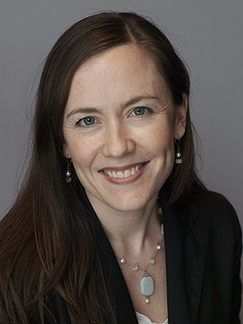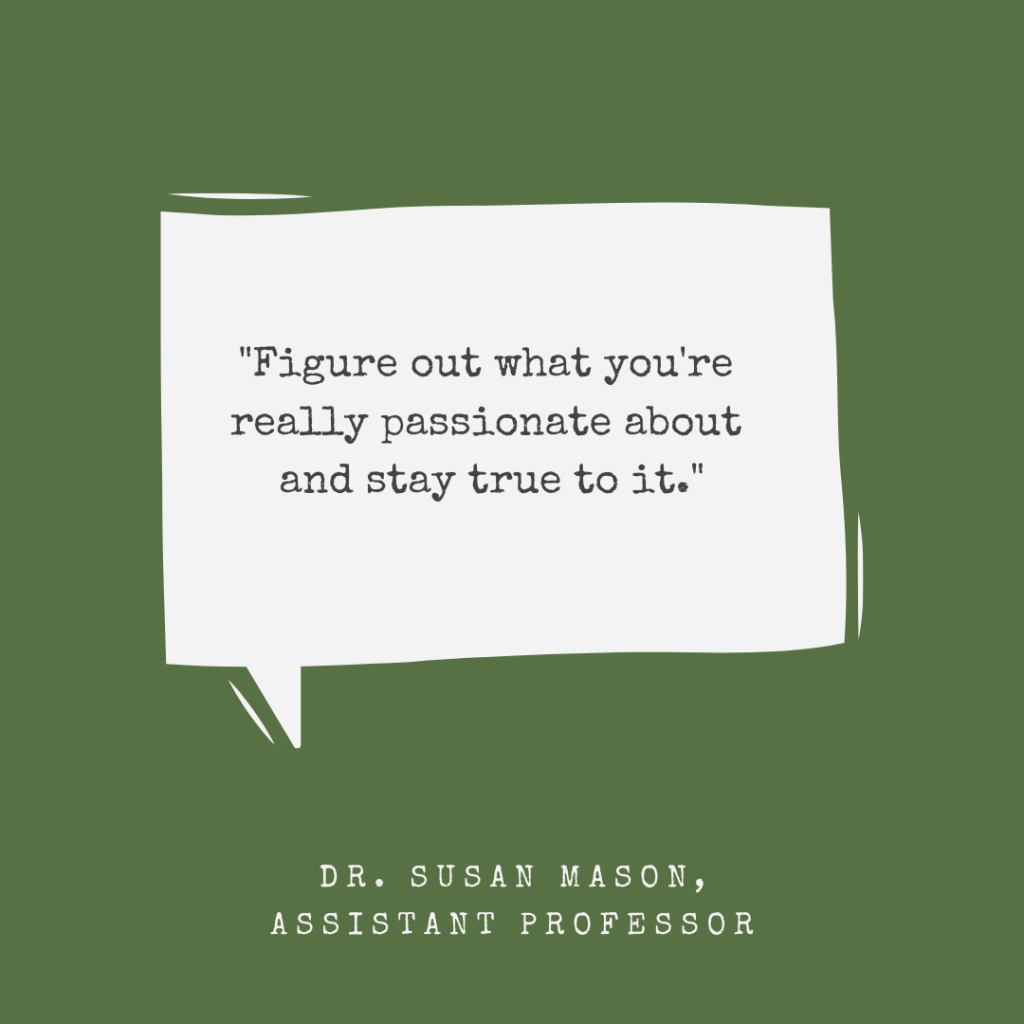Dr. Susan Mason, PhD, MPH, is an Assistant Professor in the Division of Epidemiology and Community Health. A social epidemiologist, her research focuses on the public health impacts of adverse childhood experiences (ACEs), like trauma, neglect and abuse. Susan teaches PUBH 6341: Epidemiologic Methods I.

1. What inspired you to study public health? I have always been interested in health, and like many people thought that meant I should go into medicine. But then, while working in a Planned Parenthood clinic, I realized I am just not a clinician by nature: I’m a big-picture thinker by nature so attending to the details of individual cases (particularly when you see the same thing over and over again) is really hard for me. I didn’t even know what public health was until I ran into a dead end realizing I didn’t want to go to medical school. So I ended up taking a year off and doing a bunch of informational interviews with people who had jobs I thought I’d like. I found out there was this thing called public health that seemed like a perfect fit for me.
2. What are you working on these days? That answer has changed dramatically in the past month, with COVID-19 turning life on its head! First, I’m working to keep my current studies going. One project is looking at how women’s experiences of early life adversity, like child abuse and neglect, are associated with their health and behaviors before, during, and after pregnancy. We are almost done with survey data collection for that project, so we’re just trying to finish that up. The other project is looking at a similar question, but in emerging adults–how are ACEs related to weight and weight behaviors in emerging adults in 2- and 4-year colleges? We were just starting in-person qualitative interviews for this study when the pandemic hit. We are now moving to virtual interviews and plan to start those in April of 2020. In addition, I am working on a couple of projects related to COVID-19 issues. The first is looking at how we can use school-based mental health providers (like school social workers) to support kids and families during this time of heightened stress. The second is looking at rates of child abuse during the pandemic, because we are very concerned that this is the perfect recipe for increased violence in the home.
3. What are you most proud of during your career? It’s funny but I feel like I have two answers to this question. One answer is about the sort of “gold star” accomplishments that everyone will recognize. Like getting a grant funded or winning an award. But when I think about what gives me a really deep sense of pride and meaning, it’s the connections I have with my students and advisees.
4. What has been the most challenging part of your career? Day-to-day it’s the sheer number of different issues vying for one’s attention that is challenging in academic life. At a larger scale, for me, the biggest challenges have been figuring out priorities–from questions like, “Do I move halfway across the country and far from family for this job?” to “Which of the many topics I’m passionate about do I write my next grant on?”
5. Tell us something about yourself : Do you have any hobbies? What is your favorite book? I have four kids so hobbies have sort of gone by the wayside. I have a strong creative side that I used to express in things like drawing, knitting, etc., but don’t have time for now. I do love to cook and garden, which is where I get out some of that creative energy.
6. If you weren’t working in public health and academia, what would you be doing? It may seem strange, but I think I could have been happy as a homemaker. I love the domestic arts, so that’s where a lot of my non-work energy goes. I can be quite happy spending a day gardening, cooking, baking, etc. Even cleaning is satisfying to me (I know, I know… I’m weird).

7. Can you offer one piece of advice to MCH students? Figure out what you’re really passionate about and stay true to it. Take advice on practicalities, but don’t be talked out of the things that give your life meaning. If your dream job doesn’t exist (yet), you may need to compromise for a while to bring in a paycheck, but always be working to align your day-to-day reality with your values. You’ll be happier and more productive in the long run (and better-positioned to jump if/when your dream job comes on the horizon).
Check out this recently published article highlighting Susan Mason’s work to assess child mental well-being during COVID-19. This project is a part of a series of Rapid Response Grants designed to help our researchers study the public health effects of COVID-19.